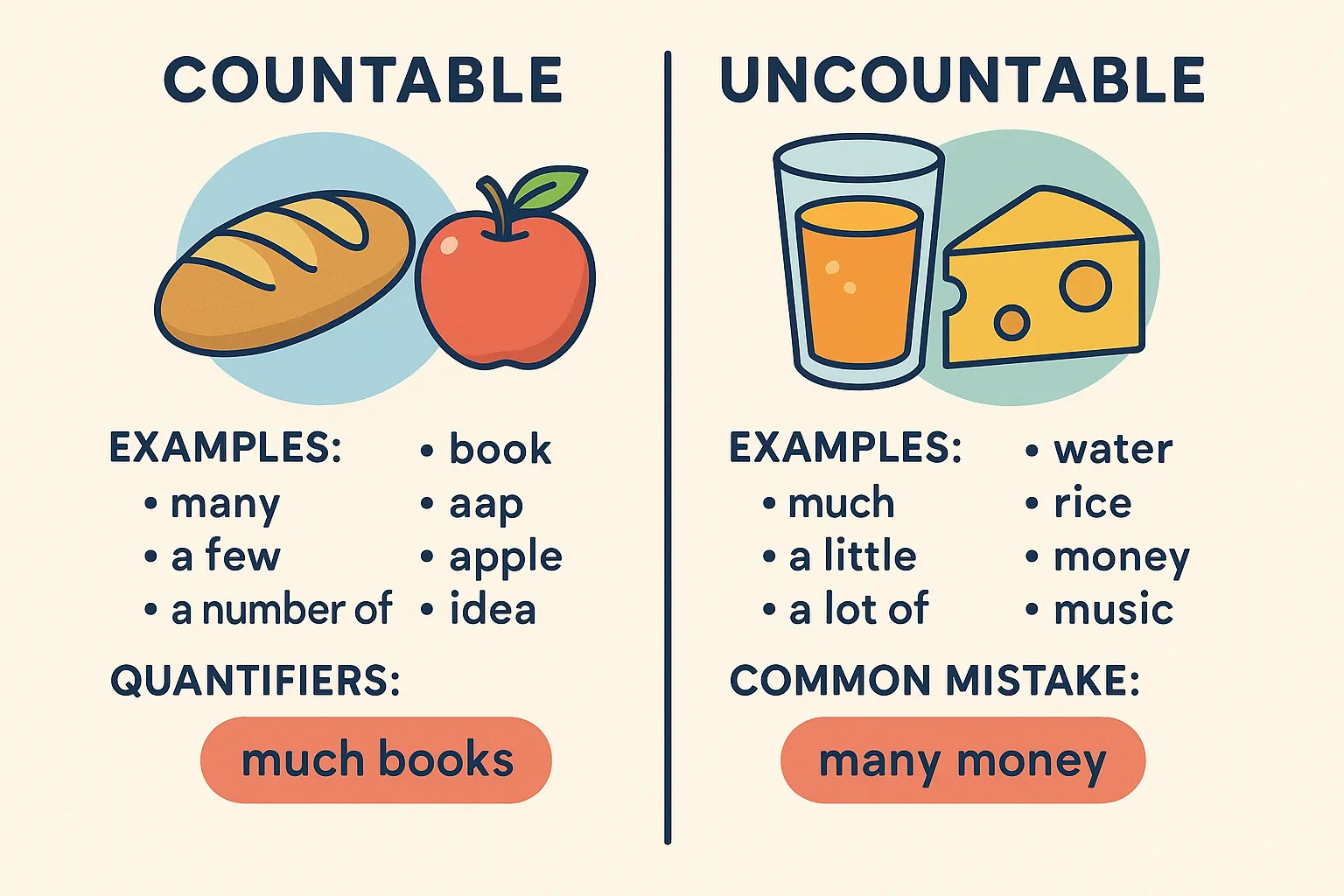Countable and Uncountable Nouns: Avoiding Common Mistakes
Learn the rules, exceptions, and practical strategies to master countable and uncountable nouns in English and avoid frequent grammar mistakes.

Countable and Uncountable Nouns: Avoiding Common Mistakes
Understanding countable and uncountable nouns is essential for speaking and writing English accurately. Mixing them up leads to common grammar mistakes, especially with quantifiers, agreement, and special expressions. This guide unpacks the logic behind these nouns and equips you with step-by-step strategies.
What Are Countable and Uncountable Nouns?
- Countable nouns (or count nouns) refer to things you can count individually: book, apple, car, idea.
- Uncountable nouns (or mass nouns) refer to substances or abstract concepts that cannot be counted as separate items: water, information, advice, rice.
Key Rules: How to Distinguish Them
| Feature | Countable Nouns | Uncountable Nouns |
|---|---|---|
| Plural Form | Yes (books, apples) | No (furniture, sand) |
| Use of "a/an" | Possible (a car, an idea) | Not possible (—) |
| Quantifiers | many, few, a number of | much, little, a great deal of |
Common Mistakes and How to Avoid Them
- Incorrect quantifiers: Never use many with uncountable nouns (too many informations ⟶ too much information).
- Singular/plural agreement: Uncountable nouns take singular verbs (The equipment is new), not plural (The equipment are new).
- Adding an 's': Do not make uncountable nouns plural (advices, furnitures). Use the word as it is (advice, furniture).
Quantifiers: Choosing the Right Words
Certain quantifiers are matched with countable or uncountable nouns:
- Countable: many, a few, several, a large number of
- Uncountable: much, a little, a great deal of
- Both: some, any, no, a lot of, plenty of
Tip: If the noun can be made plural, it’s usually countable.
Exceptions & Special Cases
- Some nouns change meaning depending on countability: chicken (animal = countable, meat = uncountable).
- Certain uncountable nouns take articles for specific items: a coffee (a cup of coffee), two sugars (two packets of sugar).
- Some nouns are uncountable in English but countable in other languages: advice, information, news, luggage.
Strategies for Remembering
- Learn common uncountable nouns by heart (see above).
- Think in terms of units for uncountables: a piece of advice, a bottle of water.
- If in doubt, check if you can add a number or make it plural. If not, treat it as uncountable.
Summary Table: Quick Reference
| Type | Examples | Correct Quantifiers |
|---|---|---|
| Countable | book, idea, cat | many, a few, several |
| Uncountable | advice, money, milk | much, a little, a great deal of |
Final Thoughts
Mastering countable and uncountable nouns helps you avoid grammar mistakes and speak with clarity. Remember the patterns—and when in doubt, consider the logic: Can you count it? Use these rules to become a more accurate English speaker.